Bloomsbury Festival 2018 – Activism and Architects of Change
20 October 2018, 6:00 pm–9:30 pm
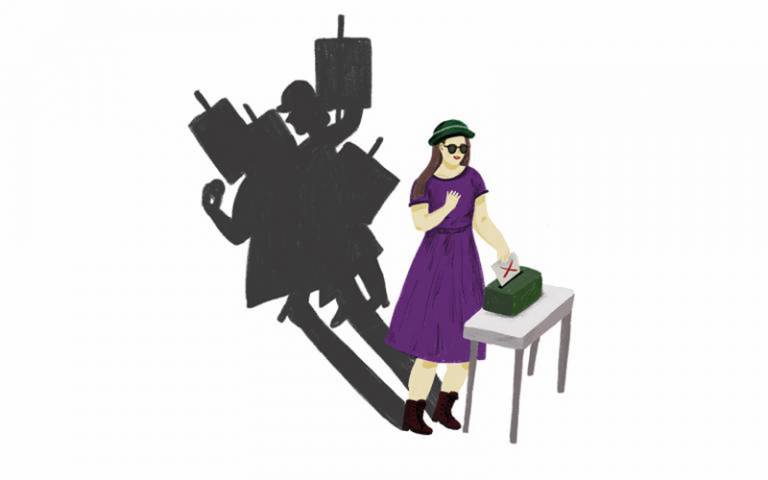
The Bartlett is collaborating with the Department of Science, Technology, Engineering and Public Policy (STEaPP), The City Leadership Laboratory and UCL Culture on a programme of events at the Bloomsbury Festival.
Event Information
Open to
- All
Availability
- Yes
Organiser
-
The Bartlett School of Architecture020 3108 7337
Location
-
The Bartlett School of ArchitectureThe Bartlett Faculty of the Built Environment22 Gordon StreetLondonWC1H 0QBUnited Kingdom
About
We're presenting an evening of workshops, storytelling, life drawing, and urban tours, investigating this year's Bloomsbury Festival theme of Activism and Architects of Change, with taster sessions available throughout the day. The evening will include a bar, music and film screenings.
Bloomsbury Festival is five-day celebration of the area’s pioneering creativity. Presenting an inspiring programme of arts, science, literature, performance, discussion and reflection, each October the Festival shines a light on the radical imaginations, institutions, and 11,000 residents that shape contemporary Bloomsbury.
- Daytime programme
Guerrilla Urbanism
South cloisters, 11am and 3.30pm, Free
Learn how to become a guerrilla urbanist and change the city around you! Join our workshop, take photographs and share your interventions. #GuerrillaUrbanism
Urban Tours
Meeting point - quad, 2pm and 3.30pm, Free
Join one of our creative tours of Bloomsbury and discover how inclusive our urban infrastructure is. Gain a different perspective on the city and notice something new in a familiar landscape.
2pm - 3pm: Skateboarding and the city (No actual skateboarding involved!)
3.30pm - 4.30pm: Photography and gender (No professional experience necessary but please bring a charged smartphone or camera)
City Stories
Octagon, 1.30pm - 3.30pm, Free drop-in session
Come to speaker’s corner to hear one of our stories about experiences of the city and find out who has access to the streets around you. Stories will be performed at 1.30pm and 3.30pm
Drawing Inequality
Art Museum, 11.30am - 1.30pm, Free drop-in workshop
Join artist Zoe Partington for a taster session to find out about an object related to inequality in the built environment and how to 'draw' that object using audio description techniques.
The Bartlett and STEaPP Late
- Guerilla Urbanism...and the right to the city
Room G.02, 6.00pm - 9.30pm, Free drop-in workshop
Learn how to become a guerrilla urbanist and change the city around you! Join our workshop, take photographs and share your interventions. #GuerrillaUrbanism
In this drop-in session, we will be exploring the ways in which we can exercise our collective right to transform ourselves by changing the city. Too often our cities are designed by and for those with existing privilege, to the exclusion of those who have been marginalised. Whether that is manifested in the dearth of accessible public toilets, poor provision of safe public transit, highly surveilled urban environments and privately owned public spaces that restrict the types of activities permitted, there is a clear contemporary need for collective action.
Sign Making
Do you have a message you'd like to share with your community? Is there a beautiful but hard to find park nearby you could point out? Is there interesting local history or significance about a certain building or piece of infrastructure? Would you like to remind people to stop and reflect on the city, to notice more? By making signs to put up in public spaces we can reveal the hidden aspects of our city.Invitations
Do other people have more power than you to change the city? By creating a thoughtful and beautiful initiation you can open a dialogue with them and ask for change. This might be inviting venues to make their toilets gender neutral, or suggesting ways in which cafes might reduce their food waste or support the local homeless populations. Carefully crafted letters might also be left around the city to invite people to visit notable local places or events.Growing spaces
Do you want to take action to make the city a healthier, happier place? Green your patch of town and join with others to transform drab patches of urban land in to mini-oases of plants and flowers. Hand-crafted seed balls can be scattered across open ground (or even dropped in to flower pots!) to bring life to a corner of the city and make it a nicer place for people, insects and animals to spend their time. We all have a right to live well in the city!
- Inequalities Marketplace
Room G.02, 6.00pm - 9.30pm, Free drop-in workshop
Come and explore inequality through objects. UCL researchers have chosen objects that relate to urban inequalities and their own research. Ask them questions to find out more!
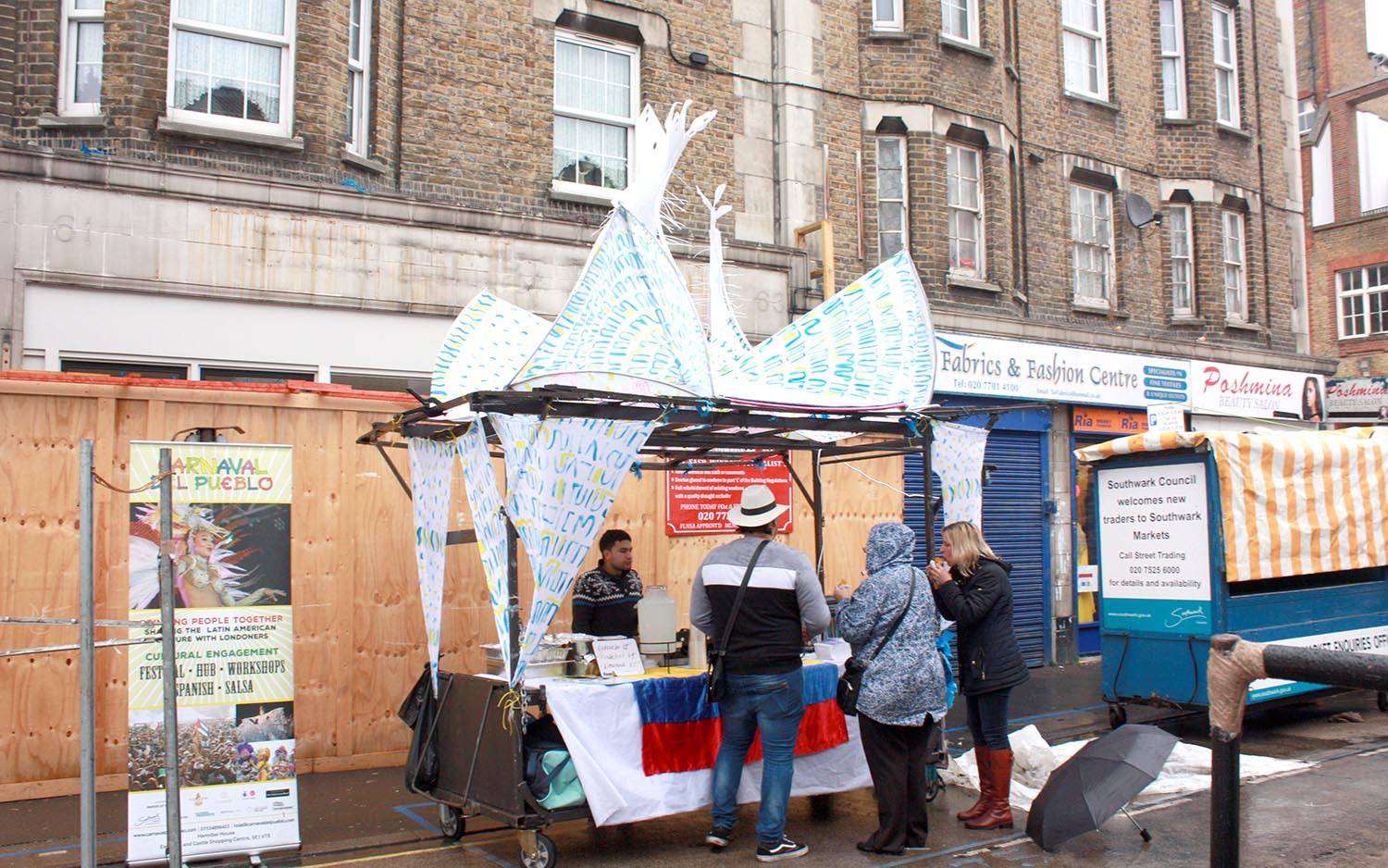
Research will include:
Market Stall
The Latin American Market Stall was developed by Laurence Flint and Timmy Whitehouse in partnership with Carnaval del Pueblo and Yipao Street Food as a response to the closure of Latin American spaces across London. The stall used the infrastructure of East Street Market to create a temporary Latin space that provided commercial opportunity, cultural exchange and celebration within the urban environment. The position of the project between its various stakeholders; a charity, a commerical business, local authority and the designers themselves, exposed the relationships and conflicts affecting urban regeneration in Southwark.
- Urban tours
Meeting point - Bookshop - 22 Gordon Street, Free pre-booking essential
Join one of our creative tours of Bloomsbury and discover how inclusive our urban infrastructure is. Gain a different perspective on the city and notice something new in a familiar landscape.
7pm - 8pm Skateboarding and the city (No actual skateboarding involved!)
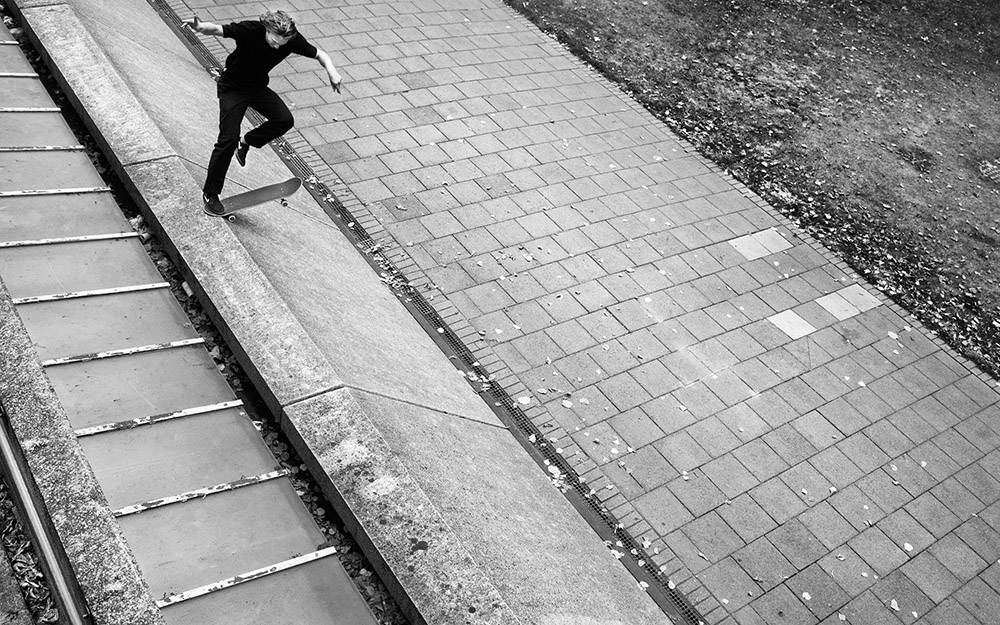
The Space in Between
Iconic locations in skateboarding culture are not designed for skateboarding. They are unused public spaces, hidden in plain sight; concealed between bus stops, supermarkets and classrooms. For the past 60 years, skateboarders have been using the urban environment in a way it wasn’t intended, scanning architecture for ‘skateable’ elements; discovering spaces that have been overlooked and forgotten by the general public. This tour aims to show the city from a skateboarder’s perspective, looking at the famous and not-so-famous ‘skate spots’ around the Bloombsury area, exploring parts of the city that others may take for granted.
The tour is hosted by Theo Krish, Director of the charity SkatePal and co-organiser of the academic skateboarding conference Pushing Boarders.
Image: Casper Brooker, no comply tailslide outside SOAS, photography by Henry Kingsford
8.30pm - 9.30pm Photography and the city at night (No professional experience necessary but please bring a charged smartphone or camera)
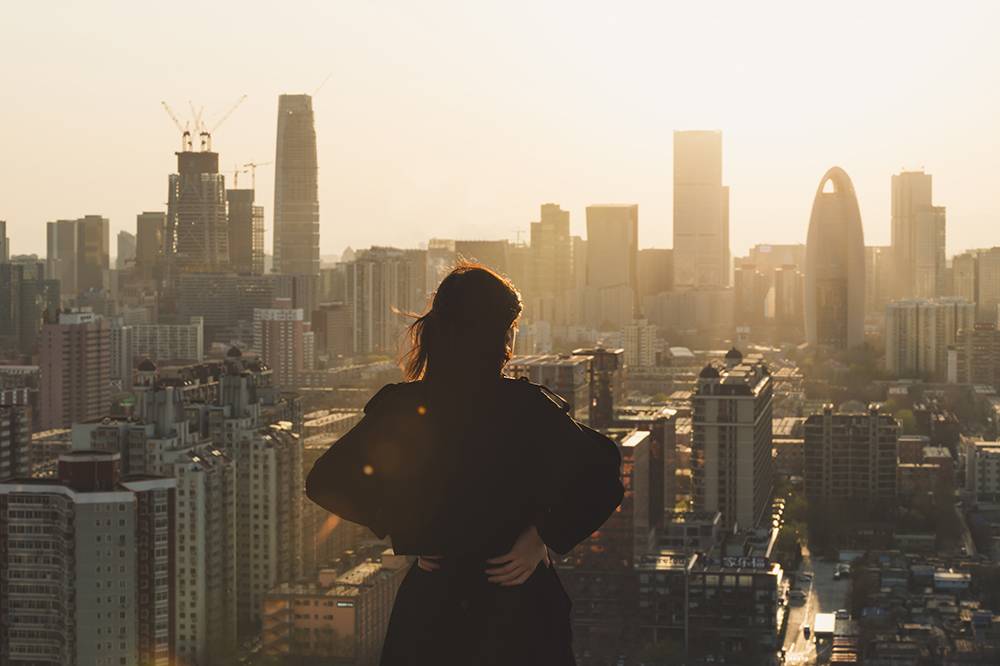
Taking inspiration from both the unknown and well-known residents of Bloomsbury's past, we will use text from notable Bloomsbury figures to inspire our photography. Paying particular attention to the limitations of working in low light we will learn how these challenges can help to capture the atmosphere and stories of Bloomsbury at night.
Grace Gelder is a London-based photographer and educator and for the last ten years she has been been facilitating photography workshops and receiving commissions from a range of clients; often collaborating with organisations that support women’s equality and wellbeing. Grace has extensive experience working with the topic of self-perception and the nude in photography which she uses as a tool to promote a healthy relationship to ourselves. She has developed a variety of approaches to the traditional structure of a photo-shoot and continues to research the roles of photographer and subject, exploring new understandings of and possibilities for making work
- Urban Storytelling
Room G.12, 7pm - 9pm Free pre-booking essential
Relax in our living room and listen to stories about experiences in the city. Hear new stories performed that take an activist approach to the urban environment, and explore how we identify with the city and how spaces are used. There will be a chance to ask questions and share experiences with the storytellers.
The Bartlett’s Site Writing students present a series of artist’s books, with performances, readings and poetry.
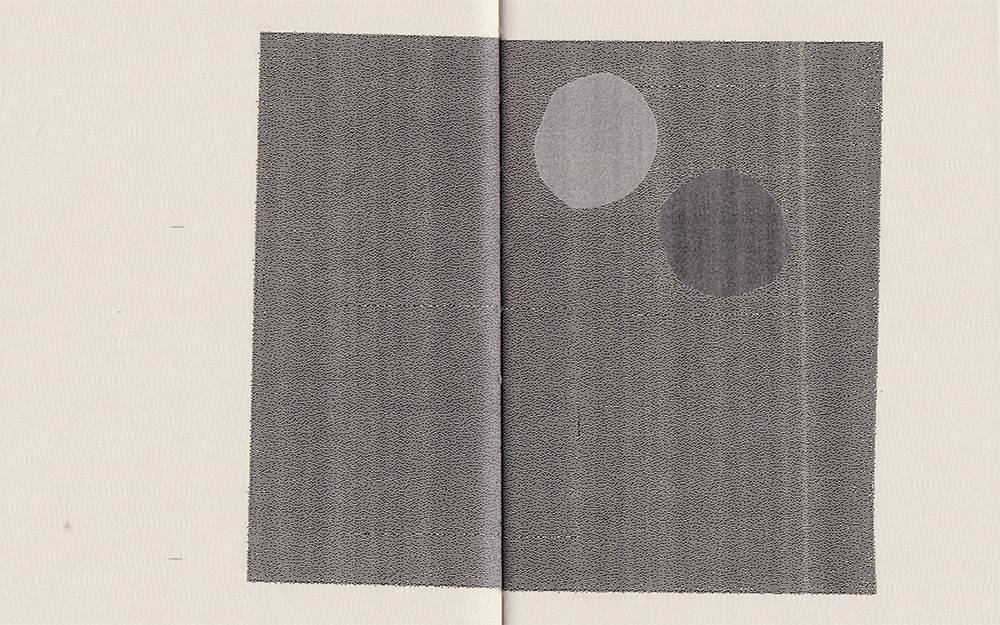
Reconstructions
Visit a selection of projects from the Critical Spatial Practice: Site-Writing module, part of Architectural History and Situated Practice Masters programmes, part of The Bartlett. A series of artist's books will be on display and performative readings that explore a practice-based approach to storytelling and criticism will be performed live. Site-writing takes into account the experiences and understanding of the writer, along with the histories and physicality of the space.
The student works exhibited and performed comprise ten site-specific works by the 2018 cohort that can be read, heard, observed, and discussed in the context of the festival's theme, Activists and Architects of Change.
"Site-writing explores the position of the critic, not only in relation to art objects, architectural spaces and theoretical ideas, but also through the site of writing itself, investigating the limits of criticism, and asking what is possible for a critic to say about an artist, a work, the site of a work and the critic herself and for the writing to still 'count' as criticism." (Jane Rendell, Site-Writing: The Architecture of Art Criticism)
Image: Site Wiritng artist book, Emma Filippides
- Life drawing
Room 1.02, 6pm - 9.30pm, Free pre-booking essential
Experiment with described drawing, exploring what can be felt and what often isn’t seen through workshops inspired by research between The Bartlett and Dis/Ordinary Architecture.
Artist’s Rachel Gadsden and Noëmi Lakmaier lead sessions which explore how to observe and record objects without sight and how bodies are experienced in spaces.
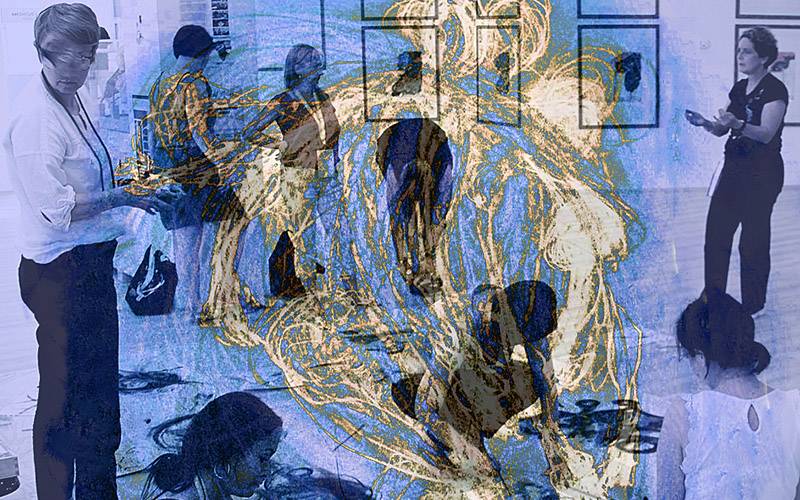
6pm - 7.30pm Session one
Join Rachel Gadsden for a drawing workshop where you have the opportunity to create artworks that capture and express the energy and emotion of the physical body as it moves in space. Taking a narrative approach Rachel will guide you through a series of drawing interventions that will be both audio described and actioned to enable you to create dynamic visceral artworks that capture the essence of what it is to be human within the built environment.
Rachel Gadsden is a visual and performance artist who works nationally and internationally on commissions and projects creating vibrant, energetic art through painting, performance, animation and film. In her work she explores and presents cross-visual dialogues that consider notions of what it is to be human.
8pm - 9.30pm Session two
Noëmi Lakmaier will guide participants, through a combined movement and drawing workshop, to dynamically explore the interrelationship between body, space, line and mark-making.
Noëmi Lakmaier is an Austrian born British live and performance artist. Using her own body, alongside everyday materials as well as the bodies of others, she creates durational, endurance based performances and living installations.
Image: Drawing workshop in Tate Modern, Rachel Gadsden
- The Bookshop - Infocopier
Room G.01, 6pm - 9.30pm, Free drop-in session
Why should knowledge be restricted by privilege? Browse a selection of important texts, zines and books about activism and urban spaces then make copies to take away.
- Architecture Beyond Sight - Exhibition
Room G.03, 6pm - 10.00pm, Free
The Architecture Beyond Sight project is a collaboration between The Bartlett and The Dis/Ordinary Architecture Project to encourage more blind and partially sighted people in architectural education. Following a three day workshop with mixed groups of sighted and none sighted participants, the current emphasis on the visual in the built environment was challenged. The result of this workshop will be exhibited, along with materials, a video and podcast from the project.
About
The Dis/Ordinary Architecture Project explores how disability and accessibility can be done 'differently' within architecture, interiors and related design practices. Instead of treating disabled people as a mainly a ‘technical' problem, to be added-on at the end of the design process, The Dis/Ordinary Architecture Project shows how starting from disability – from the rich differences that biodiversity and neuro-divergence bring – can be a vitally important creative critical resource. The Dis/Ordinary Architecture Project argues that designing with diverse bodies opens up important questions about 'what is normal', providing insights about how social and spatial inequalities are perpetauated through the design of built space, and offering valuable opportunities for change.
Access
If you have any access requirements please let us know, send an email or call 020 3108 7337

 Close
Close

